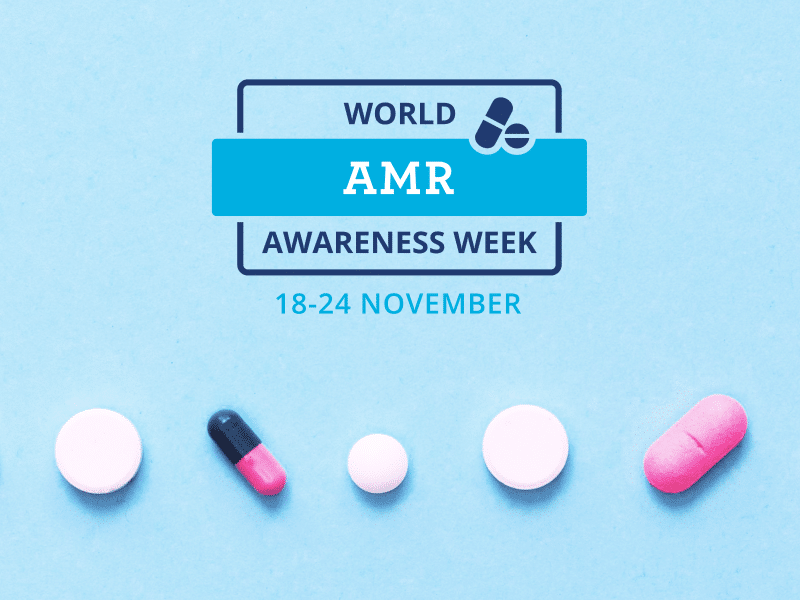World Antimicrobial Awareness Week (WAAW), celebrated annually from November 18-24, is a global campaign led by the World Health Organization (WHO) to raise awareness about antimicrobial resistance (AMR) and promote best practices among stakeholders in human, animal, plant, and environmental health sectors [1]. The theme for 2024, “Educate. Advocate. Act now,” emphasizes the urgent need for education, advocacy, and action to combat AMR [1].
The Importance of WAAW 2024
AMR occurs when bacteria, viruses, fungi, and parasites no longer respond to antimicrobial agents, making infections harder to treat and increasing the risk of disease spread, severe illness, and death [1]. This year’s WAAW aims to address this critical global health challenge by:
- Educating Stakeholders: Raising awareness about the causes and consequences of AMR among healthcare professionals, policymakers, and the general public.
- Advocating for Action: Encouraging bold commitments from governments and organizations to implement effective AMR strategies.
- Taking Concrete Actions: Promoting best practices to reduce the emergence and spread of drug-resistant infections [1].
Contributions to Industry
The industrial sector plays a pivotal role in combating AMR. Here are some key contributions:
1. Pharmaceutical Industry:
- Research and Development: Investing in the development of new antibiotics, vaccines, and diagnostic tools to stay ahead of resistant pathogens.
- Responsible Manufacturing: Implementing stringent manufacturing practices to minimize the release of antimicrobial agents into the environment [2].
2. Agriculture and Animal Health:
- Prudent Use of Antimicrobials: Ensuring the responsible use of antibiotics in livestock to prevent the development of resistance.
- Infection Prevention: Adopting measures such as improved hygiene, vaccination, and biosecurity to reduce the need for antibiotics [2].
3. Environmental Management:
- Waste Management: Proper disposal and treatment of pharmaceutical waste to prevent environmental contamination.
- Monitoring and Surveillance: Enhancing surveillance systems to track the spread of AMR in the environment [2].
Global Initiatives and Commitments
The 2024 UNGA High-level Meeting on AMR and the fourth Global High-Level Ministerial Conference on AMR have been instrumental in securing political and financial support for the global AMR response [2]. These events have led to commitments such as:
- Reducing the estimated 4.95 million human deaths associated with bacterial AMR annually by 10% by 2030.
- Ensuring that 70% of antibiotics used globally in human health are from the WHO Access group by 2030.
- Implementing measures to prevent and control infections in the agri-food systems [2].
Conclusión
World Antimicrobial Awareness Week 2024 is a crucial platform for galvanizing global efforts to tackle AMR. By educating stakeholders, advocating for bold commitments, and taking concrete actions, we can make significant strides in reducing the threat of antimicrobial resistance. The industrial sector’s contributions, from pharmaceutical innovation to responsible agricultural practices, are vital in this collective fight against AMR.
Feel free to ask if you need more details or have any specific focus areas in mind!
Referencias

